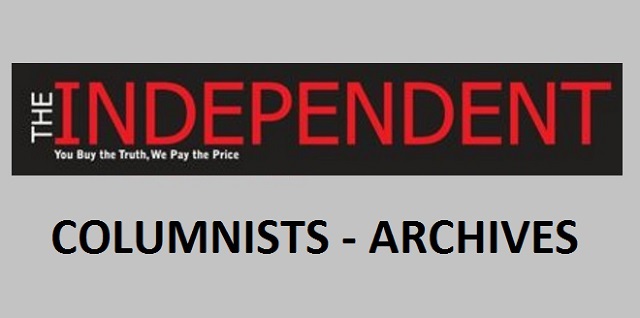
By The Independent Team
As President Yoweri Museveni’s third (fifth) term enters the third year and the country once again begins to look forward to the next general elections, the question many Ugandans are asking is: will the Prof. Badru Kiggundu-led Electoral Commission give us a better and well-organised presidential and parliamentary election in 2011?
For starters, it’s important to note that the decision made by the people of Uganda on July 28, 2005 to be governed under the multi-party political system was an important decision which was fully embraced and welcomed by the various political actors and other stake holders in the country.
The decision marked a major shift in the country’s political history as it meant that from then on wards, Ugandans would be governed under the multi-party political system of governance and indeed today we are in multi-party political system whereby we are free to choose and belong to political parties of our choosing.

The political space is now open and political parties are free to carry on with their activities like recruiting new members, opening up grass root branches, mobilizing and consulting their supporters on the various issues among others. Indeed, various political parties are carrying on these mentioned and other political activities in the country. They are working on strategies that will make them win the mandate to govern the country come 2011 elections.
Yet in my private research, I have discovered out that many Ugandans are asking themselves whether this time round, the Electoral Commission do better and conduct a free and fair election.
The 2006 presidential and parliamentary election which was organized by Kiggundu-led Electoral Commission was characterized by various electoral malpractices like vote rigging, bribery, intimidation, multiple voting, and stuffing of ballot boxes among others. Indeed, this is what made FDC party candidate Dr Kizza Besigye to petition the Supreme Court challenging the re-election of President Yoweri Museveni ‘ which found that all these electoral malpractices occurred.
Much as the Supreme Court did not over turn the presidential election results, it is important to note that all seven judges agreed that €˜the Electoral Commission failed to comply with the law on the disenfranchisement of voters, counting and tallying of the results and that the elections were not free and fair€. No wonder some judges wanted the presidential election results to be nullified!
This ruling put the Electoral Commission on the spot-light as it exposed its weaknesses to the public. Up to now, many Ugandans don’t believe that the commission is fully independent and many are still skeptical that it will organize for us better elections in 2011.
So before the next elections, Parliament and the judiciary should put in place laws with clear interpretation of what kind of electoral malpractices should warrant a re-run. The situation whereby electoral malpractices happen and the courts of law interpret that they are not substantial enough to warrant a re-run should be stopped. To me, a malpractice like bribery and intimidation when proved by the courts of the law to have been committed by one of the aspiring electoral candidates or by his/her agents, are enough to warrant an election re-run ‘ presidential elections inclusive.
In addition, those found to be using government resources during the campaign period or using government resources to entice the voters should be dismissed from the race by the EC with immediate effect in 2011 presidential and parliamentary elections. EC should also ensure that all presidential candidates are accorded equal coverage by state owned media.
The EC should also take civic education seriously and start early to educate the voters about various electoral issues like how they should conduct themselves and what to do during the campaigns and on the polling day. The civic education it carries out a few weeks to polling day is not enough!
Also related to that, the commission should adequately educate its officials to make sure that they follow the guidelines as given to them. In 2006 elections, there were various incidences where some electoral officials were not conversant with the electoral guidelines. This should no happen again in 2011.
As a way of addressing the political bias of the EC, all political parties with presidential aspirants should have representatives on the commission. This is a serious issue and an enabling law should be established to provide for this.
In sum, if the above pertinent issues can be clearly addressed by the EC and a conducive environment for the aspiring presidential and parliamentary candidates to canvass for votes is put in place, there is no doubt that at least 2011 elections will not be characterized by more controversies like it was in 2006 and 2001.
If these issues are not addressed, then expect more controversies in 2011 elections. We shall only have ourselves to blame as a country should we end up in smoke.
Tel: +256753477669
e-mail:sugarlaymosesboxer@gmail.com
 The Independent Uganda: You get the Truth we Pay the Price
The Independent Uganda: You get the Truth we Pay the Price


